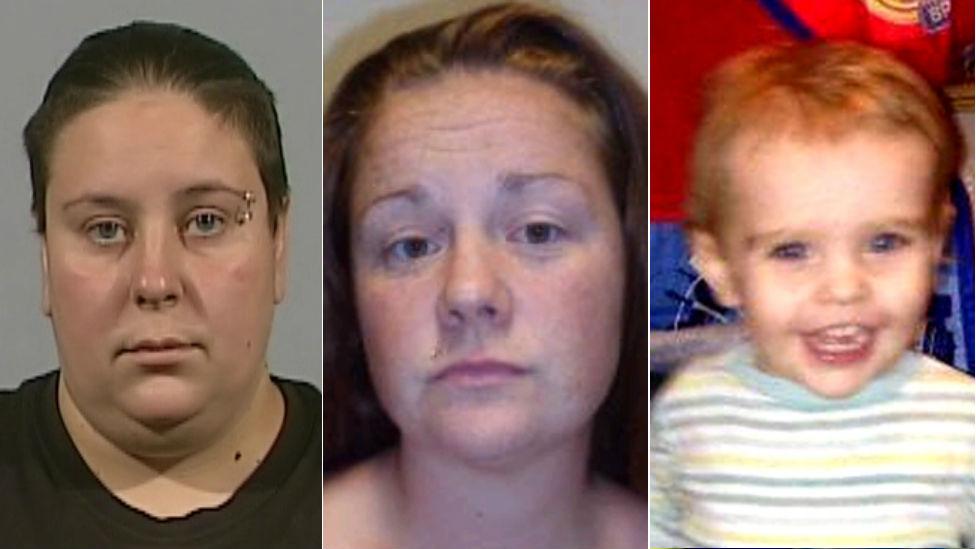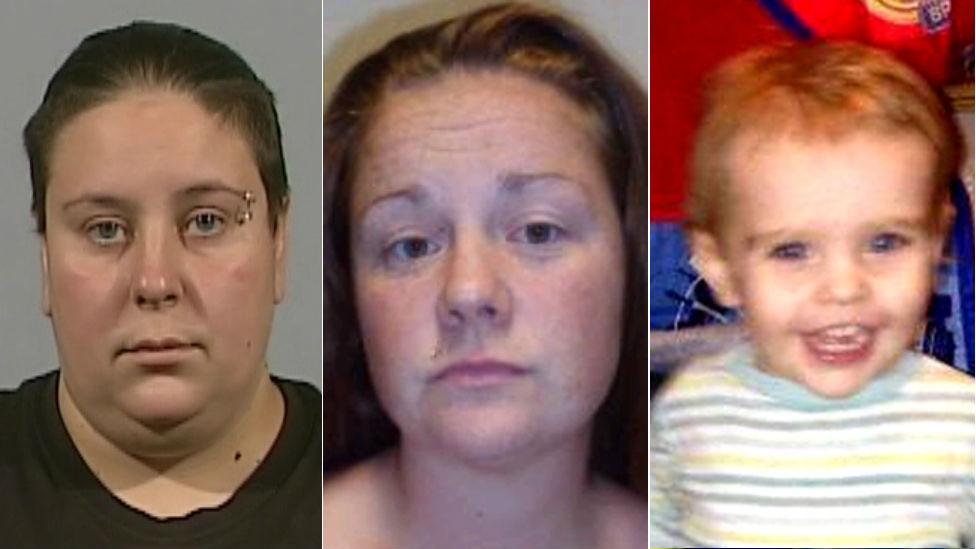Challenging questions for Nicola Sturgeon at FMQs
- Published

The Liam Fee murder case was brought up at First Minister's Questions
It is a challenge which confronts every first minister. What, they ponder, will my opponents ask when I face them at weekly questions?
Zealously, their staff scan the news agenda. They check the pronouncements of rival politicians in search of clues to issues which might arise. They sample, they consider.
Nicola Sturgeon arrived today expecting questions on education; in particular, relatively poor outcomes in basic skills from Scotland's schools. Those questions duly surfaced, posed both by Ruth Davidson of the Tories and Labour's Kezia Dugdale.
She arrived expecting a raft of constituency issues under the new reformed structure for the weekly question session. Those too surfaced, meeting the expectation of Ken Macintosh, the new presiding officer.
'Grimly aware'
She arrived ready for a wider range of topics, given the extended time allotted. She was not disappointed as MSPs quizzed her on council reform, the council tax, deals with China and much more. An eclectic, impressive mix.
But, in addition to these, the first minister was only too grimly aware that there was another topic, another issue, to confront.

That topic - distant from the mundane and the comfortably contentious - concerned the question of human evil. It touched on the capacity, or otherwise, of a system motivated by a desire to do good to cope with such evil.
In sum, the short and tragic life of Liam Fee which ended in his murder. By his mother and her partner, now convicted.
Liam's brutally truncated existence ended in a house near Glenrothes. It therefore fell to Jenny Gilruth, the newly-elected MSP for that constituency, to mourn his death and to press for answers.
Collective mourning
Nicola Sturgeon noted that there was a case review under way in Fife. She urged publication of the eventual report in order to drive action, if needed.
She noted further that Liam's death inevitably prompted another look at the entire Scottish child protection system.
She concluded by reminding MSPs that, whatever emerged, the primary culpability for Liam's murder must lie with his killers. With those expected, by social norms, to protect him.
There will be time later to examine the outcome of those investigations. Were there local failings? Is the Scotland-wide system fully fit for purpose?
Today, with all its reformed novelty in this new parliament, was not the occasion for such speculation.
The period of collective mourning has not yet passed.
- Published2 June 2016

- Published31 May 2016
